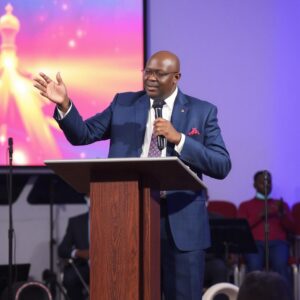Kenya’s vibrant religious landscape, a tapestry woven with diverse faiths and fervent devotion, has recently sparked a crucial debate: the necessity for greater regulation and oversight of churches and other religious activities. Growing concerns over the exploitation of followers, financial impropriety, and the propagation of harmful doctrines have amplified calls for government intervention. However, the delicate balance between safeguarding religious freedom and ensuring accountability remains a contentious issue.
A Consideration for Regulation:
- Protecting Vulnerable Followers: Unregulated religious entities can become breeding grounds for exploitation. Individuals, often in times of crisis or seeking spiritual guidance, can be susceptible to financial manipulation, emotional abuse, and the dissemination of harmful teachings. Oversight mechanisms could establish ethical standards and grievance procedures, offering a layer of protection for vulnerable populations.
- Ensuring Financial Transparency and Accountability: The significant financial flows within some religious organizations often operate without public scrutiny. Regulation could mandate transparent financial reporting, preventing illicit enrichment, money laundering, and ensuring that donations are used for their intended charitable purposes, fostering greater trust and accountability.
- Preventing Extremism and Harmful Doctrines: Unfettered religious freedom, while a fundamental right, can inadvertently provide space for extremist ideologies and practices that threaten public safety and social cohesion. Regulation could establish guidelines to identify and address groups promoting violence, discrimination, or doctrines that endanger their followers and the wider community.
 sh
sh
Feet on the brake pedal: It might also be worth to consider-
- Infringement on Freedom of Worship: Article 32 of the Kenyan Constitution guarantees freedom of thought, conscience, and religion. Critics argue that regulation constitutes an unwarranted intrusion into this fundamental right, potentially leading to government control over religious doctrine and practice, thereby stifling spiritual expression and autonomy.
- Defining and Enforcing Fair Regulations: Establishing impartial and universally applicable regulations across diverse religious traditions presents a significant challenge. Defining what constitutes harmful doctrine or financial impropriety without bias and ensuring fair enforcement mechanisms that respect the autonomy of religious institutions could prove complex and potentially discriminatory.
- Potential for Political Interference: There’s a legitimate concern that government regulation could be politicized, used to target dissenting religious voices or to exert undue influence over religious organizations for political gain. Maintaining a clear separation between the state and religious institutions is crucial for preserving religious freedom and preventing abuse of power.
Navigating this complex terrain requires careful consideration. Any regulatory framework must strike a delicate balance, ensuring accountability and protecting citizens without infringing upon the fundamental right to freedom of worship. Open dialogue, involving religious leaders, legal experts, and civil society, is essential to crafting solutions that safeguard both faith and the well-being of the Kenyan people.